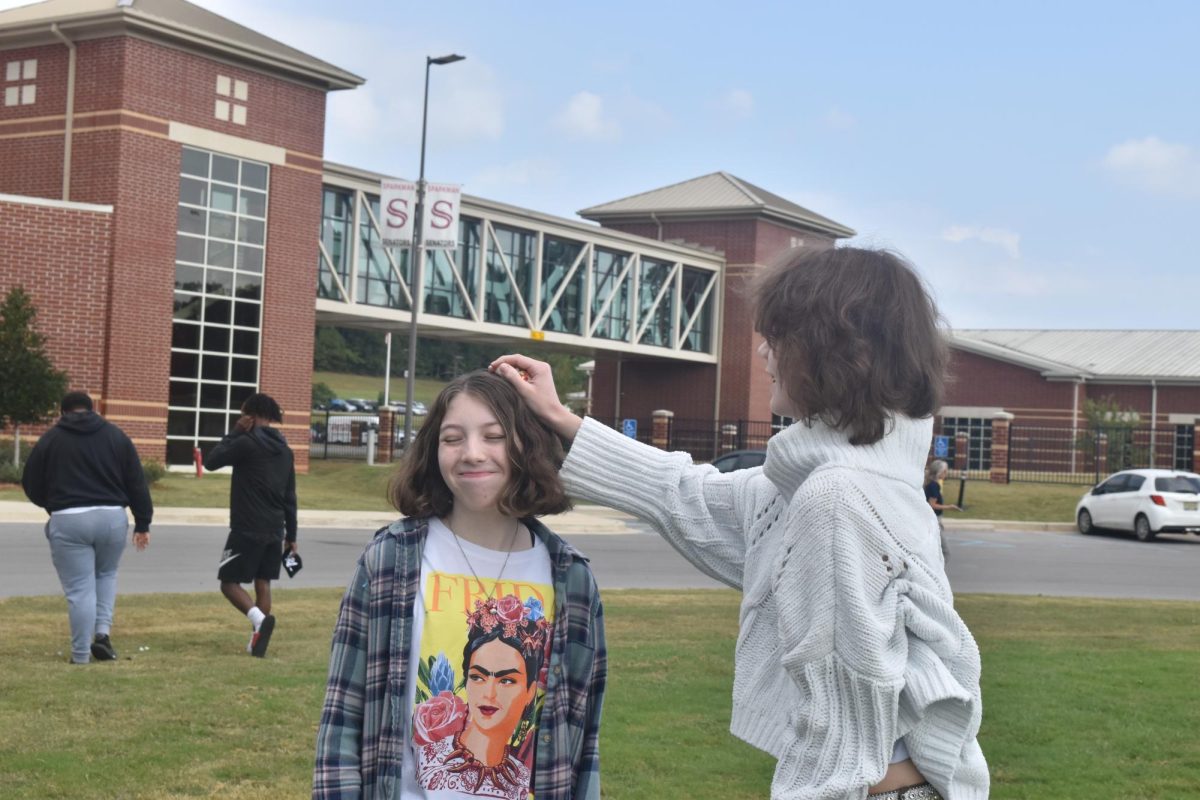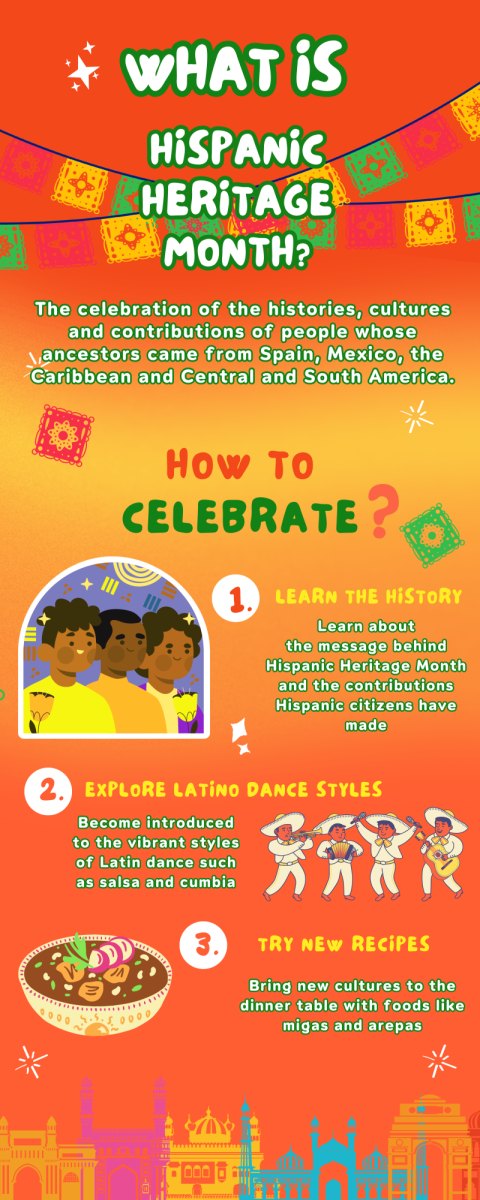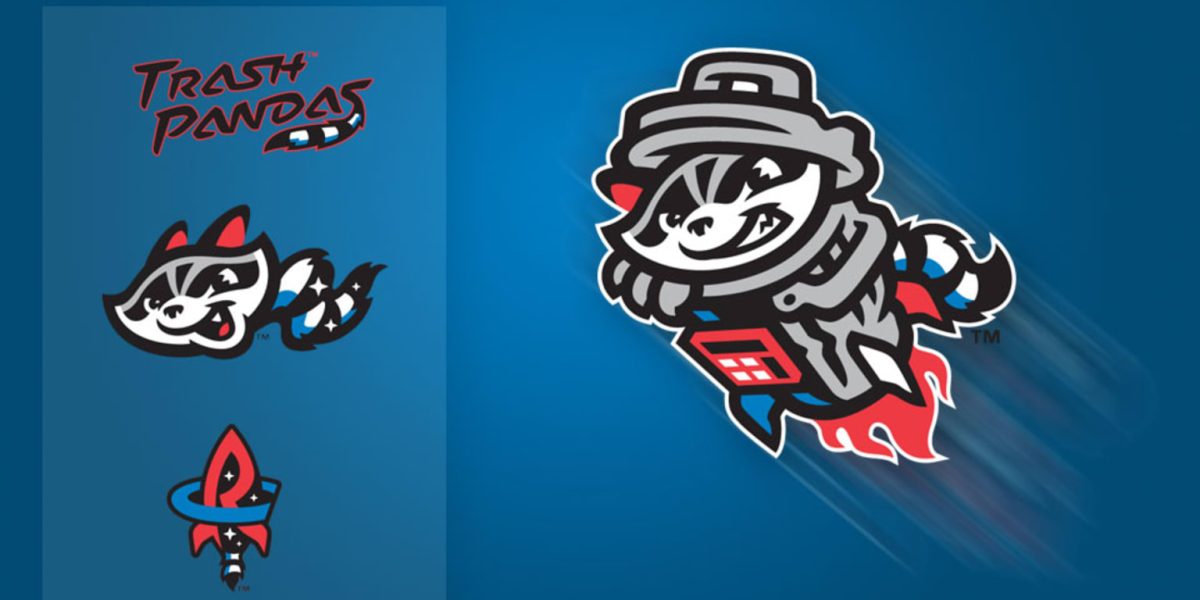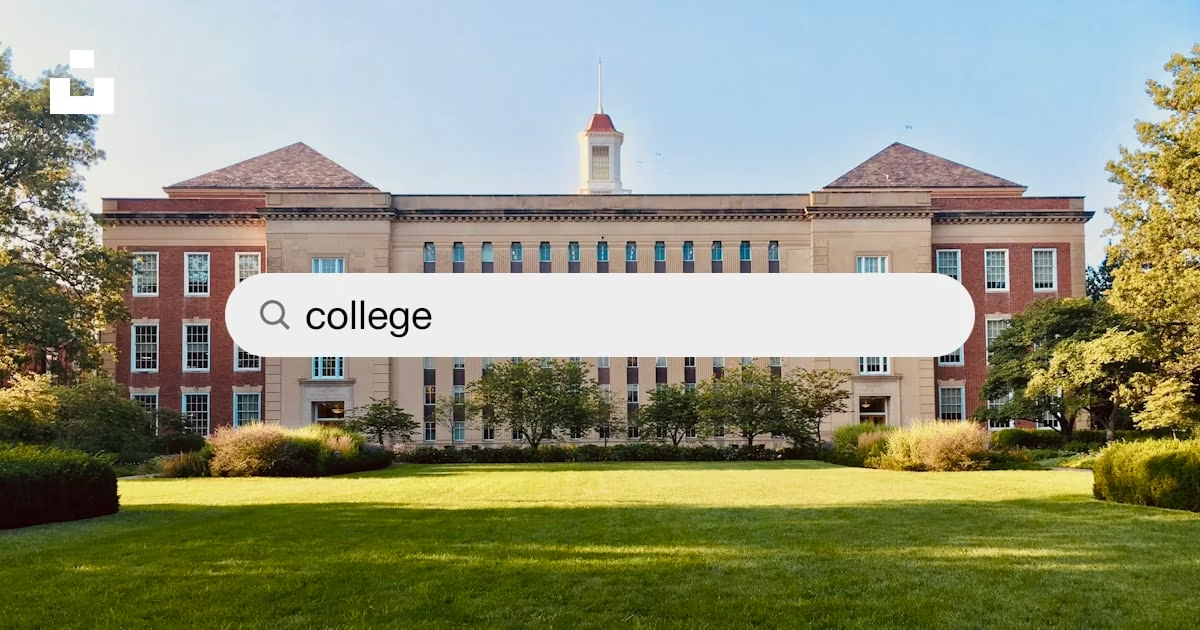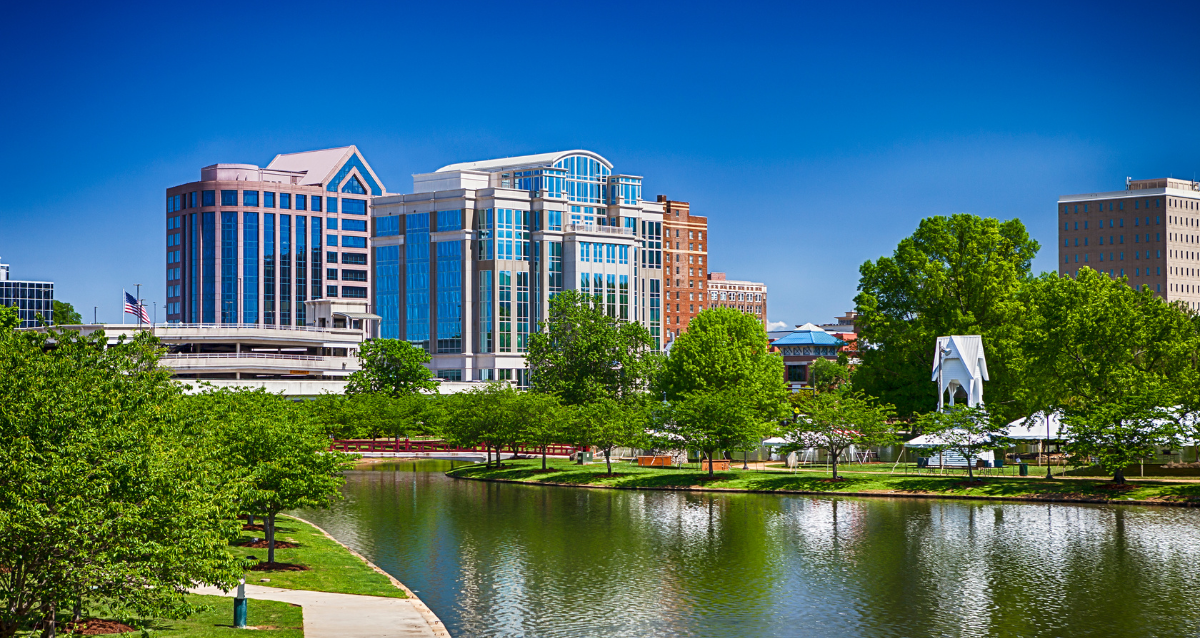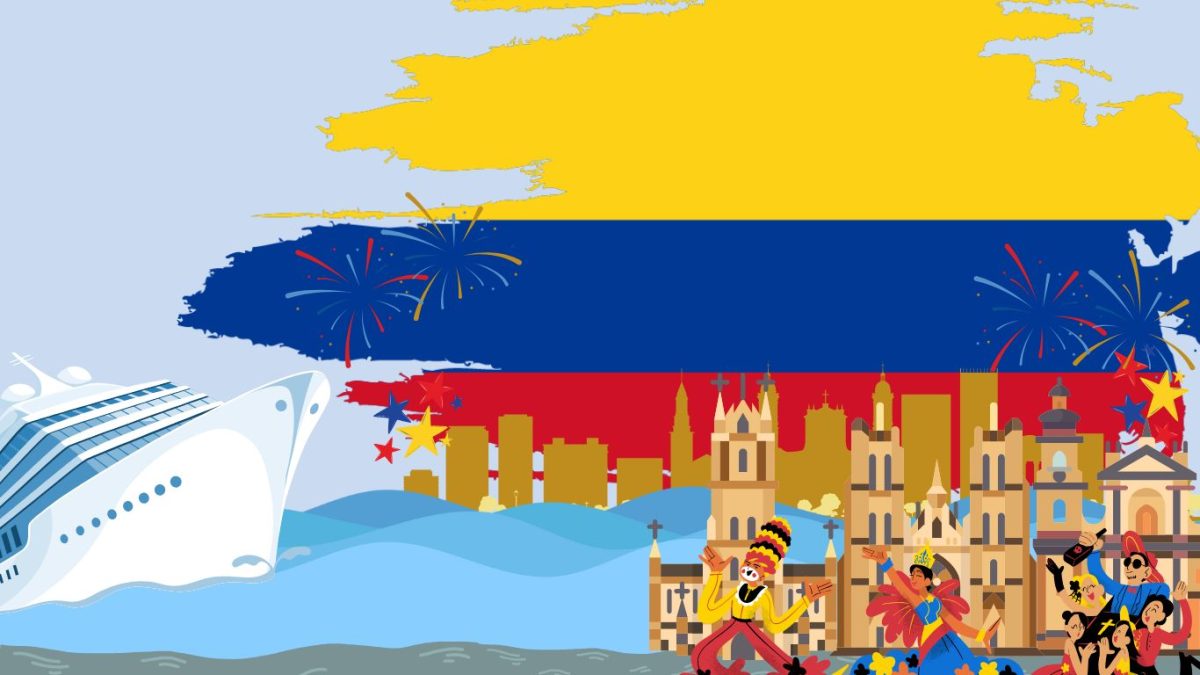
Fall Months Set Aside to Celebrate Hispanic Heritage Month

Hispanic Heritage Month is a time to spread and celebrate the traditions and cultures of all Hispanic countries. Spanish teacher Senora Carla Naves Pena did not shy away from including one of Mexico’s most precious traditions within the classroom, Cascarones. Naves Pena introduced her students to the tradition as she thought it would be a fun and active experience for them.
“We always look for different ways to connect kids to traditions and not just from Mexico. Making Cascarones is just a fun way for them to understand why we do things, and just to have fun. I think most of the kids really enjoyed it,” Naves Pena said.
The Cascarone tradition was originally adopted from a similar egg tradition in Chinese culture. The Chinese version of the eggs contained perfume and were given as gifts and that then spread to Spain and was eventually brought to Mexico and filled with rice, confetti and lots more. Naves Pena educated her students on the history of the Cascarón across the world.
Growing up, Naves Pena celebrated with Cascarones various times as a teenager. As Cascarones are mostly used at big events such as Mexican Independence Day and Carnival she often went as a teen.
“One of my favorite memories would be when I went to the main plaza, which is called Zócalo, With thousands of people around. When the 12th Bell rang on Mexican Independence day we all shouted ‘Viva Mexico’, which stands for long live Mexico,” Naves Pena said. “The President gave a speech, we had fireworks, music and sang the Mexican anthem. Then we all did the cascarones on strangers heads and that was really fun,”
The act of smashing the cascarones carries all types of meanings according to Naves Pena, but the one that resonates with her the most is that it brings good fortune and shares kindness amongst strangers. To her personally Naves Pena states that the tradition helps her tap into her heritage as a Mexican and makes her feel proud of where she came from.
“Participating in Cascarones is just a fun way to tap into my heritage and showcase it in the classroom or in my community. Because people think Mexican culture is just tacos, maracas and mariachis. But there is so much more in knowing why we do things and how the tradition started,” Naves Pena said. “It just helps kids understand the relevance of it all and it gives us an excuse to be kids all over again because who doesn’t like running around and smashing eggs on people’s heads.”

In the midst of Hispanic Heriatage month, Sophomore Ryann Petraszewsky reflects on her culture, her heritage and her family life.
Petraszewsky has family living in Mexico that she visits every summer.
“I love visiting my family in Mexico because the happiness I feel when I see them is a feeling I can’t get anywhere else,” Petraszewsky said.
Having family so far away from home has been difficult for Petraszewsky as she is close with her relatives and can only see them a few times a year.
“Honestly, I cry about it sometimes, all the emotions I feel and memories I have with my family,” Petraszewsky said. “You don’t experience the same things in the US that you do in Mexico.”
During her trips to Mexico, she celebrates special moments with her relatives. She recently had her quinceañera in Mexico surrounded by her loved ones. Her culture and all the intricacies that come with it are very important to her.
“Having my quinceañera in Mexico is something I’ve dreamed of since I learned what a quinceañera was,” Petraszewsky said.
Her trips to Mexico give her a chance to embrace her culture and her heritage with those who share her identity. Appreciating different cultural experiences can be a crucial part of growing up for any teenager.
“I love embracing myself through my culture and my heritage, it’s a part of me and who I am,” Petraszewsky said.
It is important to celebrate Hispanic Culture because it is a time where we recognize and celebrate the many contributions and diverse cultures. It’s meant to not only honor the Hispanic Heritage and all Hispanic Americans who have helped build America but also shine a light on how far there is to go.
The U.S has always been a country where there are possibilities and opportunities for everyone. This is the living dream of a Hispanic who comes to the U.S. to leave a legacy for their families. This can be an opportunity to recognize families that are hardworking and who are often managing acculturation or immigration issues.
For some families, coming to the U.S. is having an opportunity to own a home, while for others it is surviving. Our parents and ancestors come to the U.S. so we can get better opportunities and better education. Our parents sacrificed their lives so we could have the opportunity to go to college, have a safe environment, and have a roof over our heads.
The beginning of 1968, Hispanic Heritage Month was observed as a week but later extended to a month in 1988. This month celebrates the independence of Costa Rica, El Salvador, Guatemala, Honduras, Nicaragua, Mexico and Chile These countries celebrate Sept, 15-18. This celebration is celebrated in many different ways which could be eating foods from different countries, having parties, spending time with family, etc. It will always be important to celebrate and commemorate Hispanic Heritage month and our ancestors.
Es importante celebrar la cultura hispana porque es un momento en el que reconocemos y celebramos las muchas contribuciones y diversas culturas. Está destinado no solo a honrar a la herencia hispana y a todos los hispanoamericanos que han ayudado a construir Estados Unidos, sino también a arrojar luz sobre lo lejos que hay que llegar. Estados Unidos siempre ha sido un país donde hay posibilidades y oportunidades para todos. Este es el sueño vivo de un hispano que viene a los Estados Unidos para dejar un legado para sus familias. Esta puede ser una oportunidad para reconocer a las familias que son trabajadoras y que gestionan problemas de aculturación o inmigración. Para algunas familias, venir a los EE. UU. es tener la oportunidad de ser dueña de una casa, mientras que para otras es sobrevivir. Nuestros padres y antepasados vienen a los EE. UU. para que podamos tener mejores oportunidades y una mejor educación. Nuestros padres sacrificaron varias cosas para que pudiéramos tener la oportunidad de ir a la universidad, tener un ambiente seguro y tener un techo sobre nuestras cabezas. A principios de 1968, el mes de la herencia hispana se observó como una semana, pero más tarde se extendió a un mes en 1988. Este mes se celebra la independencia de Costa Rica, El Salvador, Guatemala, Honduras, Nicaragua, México y Chile se celebran el 15, 16, y el 18 de septiembre. Esta celebración se celebra de muchas maneras diferentes, que podrían ser: comer alimentos de diferentes países, hacer fiestas, pasar tiempo con la familia, etc. Siempre será importante celebrar y conmemorar el Mes de la Herencia Hispana y a nuestros antepasados.


